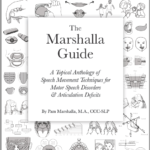Chronic Otitis Media and Risk of Reading Failure...
This article was originally published in “Your Middle Schooler: A Unique Age” in 2008. I try to include information on hearing history in every evaluation I perform. Not just for curiosity but because I really feel early hearing history plays a significant roll in language development and “learning to listen”. Last time I asked audiologists were not supporting this correlation. I hope things have changed. Because it is not a big issue in audiology, I have a hard time getting most administrators to accept this as an issue. As long as the kids pass the school screening, life is good. If universal supports were put in place around hearing and acoustics in general imaging the problems that could be avoided. WEDNESDAY, JANUARY 16, 2008 Chronic Otitis Media and Risk of Reading Failure While this...
read more






